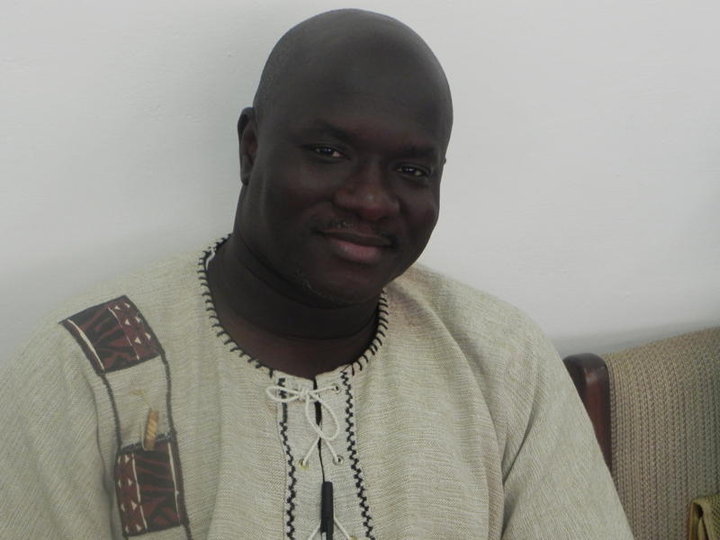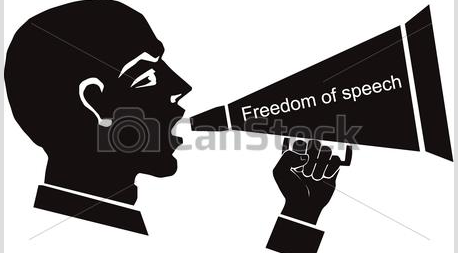By Madi Jobarteh
Journalism without fear or favour. The Gambia needs strong and fearless journalists today more than ever!

Today is World Press Freedom Day with the theme ‘Journalism without fear or favour.’ A day dedicated to the promotion of freedom of expression and the media. The day cannot come at a more critical time for the Gambia. Since ousting dictatorship three years ago the increasing incidence of inefficiency in the public sector and plunder of the national cake have taken a whole new level. Never in the history of The Gambia has the country demonstrated all the characteristics of a failed state than now.
The Barrow Administration does not only demonstrate its commitment to maintaining the same old abhorrent system of patronage, plunder and mismanagement of the national cake, but this administration has gone further to take practical steps to ensure that system change will never take place in this country. Consequently, the incidence of abuse proliferates throughout the government. From abandoning the Janneh Commission Report to disregarding the Constitution on fundamental issues such as the use of funds for the fight against COVID-19, the government has entered into contracts for which Gambians have been kept in the dark.
Thanks to this government the Chinese are depleting our natural resources and at the same time damaging our environment while denying our people their God-given resources. It is now more than one month since the CRC presented its final draft constitution to the President yet until today there has been no public acknowledgement of that most important document. All indications are that this President is not committed in any way to ensure that this country has a new constitution in time for the 2021 presidential elections to usher in a new democratic republic.
It is in light of these and many more concerns that the need for our journalists to stand up to fulfill their role has become extremely important. Our journalists must begin to identify the pertinent issues of our society so as to bring them before the people in the open. The media must not allow our government to hide things from the people. The media must not allow the President to fail in his duties or to abuse his powers. The Constitution has given a unique role to the media to hold the Government accountable on behalf of the people. Hence our journalists must be prepared to perform their duties without fear or favour which is utterly necessary today more than ever.
At the same time our journalists and media must not spare our opposition political parties and politicians across the board. As governments in waiting, political parties are fundamental national governance pillars that must be checked and exposed. Our parties and politicians must be checked to ensure that they engage in politics of decency and promote the national interest at all times in their affairs. Above all our media must check political parties to ensure that they are democratic. Without democratic parties that abide by all the values and standards of internal good governance we cannot possibly have democratic government and good governance at the national level. Hence the need to scrutinize political parties is utterly important.
In light of the above I wish to share two insights about the value, role and importance of the media in our lives and democracy. The first is a quote from a one-time Swedish Minister for International Development Cooperation, Gunilla Carlsson who spoke at the University of Social Science and Humanity in Hanoi, Vietnam in 2007 on the topic, ‘The role of media in a democratic society’. In her speech she spoke about how journalists can make democracy work by identifying issues, setting the agenda and empowering the people. Here is an excerpt,
“Democracy and poverty reduction can never be guaranteed by politicians alone, whether they are elected or self-nominated. In the end, it is a question of people’s opportunities to influence their situation, claim their rights and being able to voice their concerns. But to exercise these rights presupposes that citizens have access to information that has not been filtered, censored or distorted. How can I claim my rights if I don’t know what they are? How can I voice my concerns if I risk being prosecuted for doing so? These are a few examples of why the role of media is crucial to the development of a country. The quality of the information an individual is able to access will, by necessity, greatly influence his or her ability to participate in the political process. In other words, journalists have a responsibility towards their fellow citizens to provide correct and analytical information.
The second insight I wish to share is from the veteran American journalist Joseph Pulitzer who was extremely determined in holding the U.S. Government and its politicians to account. In fact, he was charged and tried for libeling against U.S. President Theodore Roosevelt when he exposed massive corrupt practices involving the President in 1909. In 1904, Pulitzer wrote that essentially the kind of republic we have lies in the hands of the media,
“Our Republic and its press will rise or fall together. An able, disinterested, public-spirited press, with trained intelligence to know the right and courage to do it, can preserve that public virtue without which popular government is a sham and a mockery. A cynical, mercenary, demagogic press will produce in time a people as base as itself. The power to mould the future of the Republic will be in the hands of the journalists of future generations.”
These insights should serve as inspiration and guidance for our journalists in understanding and fulfilling their role in strengthening democracy and good governance in The Gambia. Ultimately the quality of our democracy and good governance lie on how much the media will perform its role. It is in the performance of its role that the media will become that indispensable instrument to enable The Gambian People and their government to defeat poverty, deprivation, corruption and abuse of power.
Our media need to answer to this call even more today to empower the country to tackle the high rate of injustice, inequality, sexual- and gender-based violence, discrimination and exclusion. We need our media to play a huge role in exposing all forms of injustices and harmful sociocultural beliefs and practices and misconceived religious ideas that are used to perpetuate violence of all forms, especially against children, women and persons with disabilities in our society.

